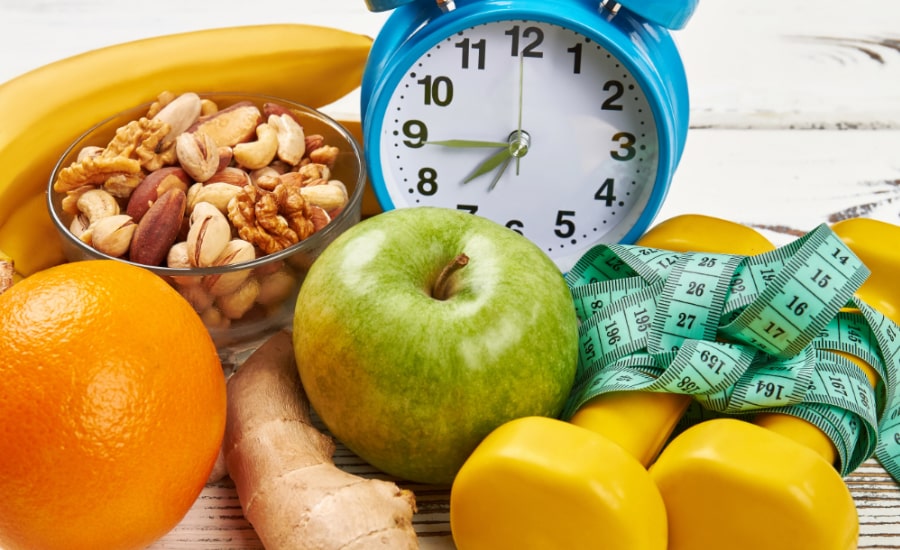Balancing your life creates harmony, to reach this balance begins with you maintaining an inner sense of peace.
Making time for all the things that our day brings us can be a task, however you have the power to create this harmony between your responsibilities and finding time during the day that brings your personal fulfillment, pleasure, and happiness.
Finding time to balance your life can seem like a huge task and to some may seem impossible. Our PMC providers are here to help you find your balance in order for you to be able to create harmony in life.

Fueling your body properly is one of the best things you can do for yourself. In the South especially, we tend to have three hearty meals a day, and can’t seem to get away from our “meat and potatoes”. Instead, try eating multiple small meals a day with plenty of fruits and vegetables — five servings a day should be your minimum. When it comes to protein, your needs will depend on your age, size and activity. We recommend that you steer towards lean meats, egg whites, beans and low-fat dairy for protein. In addition, staying away from heavily processed food, especially starches, is a great practice.

Similar to fruits and vegetables, most Americans are not consuming enough water. For men, the average adequate intake is 12 cups daily, and for women, 9 cups daily. Every day you lose water through your breath, perspiration, urine and bowel movements. In order for your body to function properly, you must replenish its water supply by consuming beverages and foods that contain water. Also remember to avoid sodas and limit juices, as they sometimes have little nutritional value. Sweet Tea is a staple in the South, but be cautious of the excess caffeine and over-abundance of sugar.

How much exercise should you be getting? The answer is simple: you should do some form of physical activity every day. At the very minimum, you should work out for 30 minutes three times a week – ideally, 30 minutes five times a week. If you are going to the gym, your work-outs should not be longer than an hour unless you are an elite athlete training for a sport. Try the elliptical machine for a good cardiovascular workout with low impact on the joints. In addition, weight lifting will help strengthen your muscles and bones, as well as burn fat. Some other great forms of working out include walking, swimming, and tennis. As stated before, keep your workouts on the shorter end of the spectrum. Often times, over-training leads to injury or illness. Don’t forget that the recovery period is when your body gets stronger!

The amount of sleep you need depends on various factors, especially your age. School age children should be getting 10 to 11 hours of sleep, and adults should be getting 7 to 9 hours. Some other factors that will change the amount of sleep you need include, but are not limited to, pregnancy, aging and sleep deprivation. Also keep in mind that there’s a difference between sleep and quality sleep. If your sleep is frequently interrupted or cut short, you’re not getting quality sleep. The quality of your sleep is just as important as the quantity!

Stress is a normal psychological and physical reaction to the ever increasing demands of life; however, without stress management, our bodies are too often in a state of high alert. Over time, high levels of stress lead to serious health problems. Practicing a range of stress management techniques will prevent stress from having a negative impact on your health, relationships and quality of life. Identifying your personal stress triggers and learning how to cope with them is a great start to stress management. Other ways to manage your stress can be through meditation, such as tai-chi or yoga.

When you hear the word addiction you may think of alcohol or smoking addictions; however, there are various types of addictions that many of us struggle with daily. Everyone has behaviors or vices that they overindulge in, which can cause harm to our well-being. For example, someone may have an addiction to caffeine. If you were to eliminate soda, coffee and any other caffeinated beverages from their diet, they would experience physical withdrawal symptoms. It is important that we recognize and manage our addictions, whether it be an addiction to junk food, the internet, work, etc.